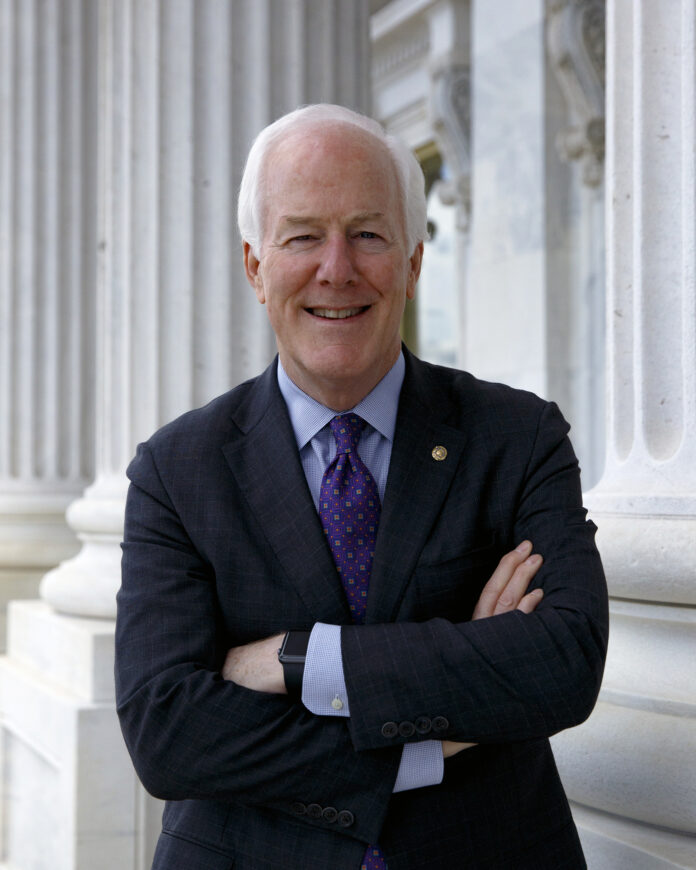Funding Authorized by Cornyn’s Mental Health & School Safety Bill Signed Into Law After Uvalde Shooting
WASHINGTON – U.S. Senator John Cornyn (R-TX) announced today that the U.S. Department of Justice (DOJ) has awarded $21,246,509.00 in federal grant funding to the State of Texas. The funding comes from the DOJ’s Byrne State Crisis Intervention Program (SCIP), which was recently authorized by Sen. Cornyn’s Bipartisan Safer Communities Act that was signed into law on June 25, 2022. This SCIP grant was awarded to Governor Abbott’s Public Safety Office to support state and local crisis intervention programs, including the expansion of behavioral health crisis response initiatives and specialized court-based programs to address risk factors that lead to violence.
“Following the tragedy in Uvalde, I fought to ensure every state would receive funding to administer effective crisis response programs that uphold due process and improve public safety,” said Sen. Cornyn. “I applaud this significant investment for Texas to strengthen its existing intervention programs and ensure individuals in crisis receive meaningful help as our state continues to prioritize safe and healthy communities.”
Background:
The Bipartisan Safer Communities Act is targeted legislation addressing specific concerns that have led to recent mass shootings, including the need for additional mental health services and crisis intervention resources. In the legislation, Sen. Cornyn ensured there was no federal mandate, incentive, penalty, or set-asides for states to have or create a so-called ‘red-flag law’ in order to receive federal funding. Every state is eligible for equal funding based on an existing formula that grants states the flexibility to implement the appropriate crisis intervention programs such as mental health courts, drug courts, Veterans’ Courts, and Assisted Out Patient Treatment (AOT) programs. Any state that uses this funding to enforce a ‘red-flag law’ must conform to strict and robust due process requirements put in place by this legislation.
The new law also includes:
Support for State Crisis Intervention Programs
● Provides resources to states to implement crisis intervention court programs, which could include mental health courts, drug courts, Veterans’ Courts, and Assisted Outpatient Treatment (AOT) programs.
○ Every state would receive funding based on an existing formula and have the flexibility to choose whichever crisis intervention programs would work best for them. There are no mandates, incentives, penalties, or set-asides.
○ If a state chooses to use any of this funding to implement an extreme risk protection order program, it would be required to meet strict and expansive due process, evidentiary, and standard of proof requirements.
Investments in Children and Family Mental Health Services
● Expands the community behavioral health center model nationwide and makes major investments to increase access to mental health and suicide prevention programs and other support services available in the community, including crisis and trauma intervention.
Protections for Victims of Domestic Violence
Updates the definition of misdemeanor crime of domestic violence to include those who have or have had a current or recent continuing serious relationship of a romantic or intimate nature with their victim.
● Individuals convicted of a misdemeanor crime of domestic violence against a person with whom they have or have had a current or recent continuing serious relationship of a romantic or intimate nature would have their right to purchase and possess firearms automatically restored after five years elapsed from the end of their criminal sentence if they had committed no further crimes of violence.
Funding for School-Based Mental Health and Supportive Services
● Invests in programs to expand mental health and supportive services in schools, including early identification and intervention.
Funding for School Safety Resources
● Invests in programs to help institute safety measures in and around primary and secondary schools, supports school violence prevention efforts and provides training to school personnel and students.
Clarification of the Definition of Federally Licensed Firearms Dealer
● Cracks down on criminals who illegally evade licensing requirements.
Telehealth Investments
● Invests in programs that increase access to mental and behavioral health services for youth and families in crisis via telehealth.
Under-21 Enhanced Review Process
● For buyers under 21 years of age whose background checks are flagged for cause, the bill allows up to seven additional days for the FBI to conduct an enhanced review into the possibly disqualifying juvenile and mental health adjudication records.
Penalties for Straw Purchasing
● Cracks down on criminals, cartel members, and terrorists who illegally straw purchase and traffic guns.
The Senators’ Bipartisan Safer Communities Act was fully offset and was supported by the Fraternal Order of Police, the International Association of Chiefs of Police, the National Sheriffs’ Association, the Major Cities Chiefs Association, the National Network to End Domestic Violence, the National District Attorneys Association, the National Alliance on Mental Illness, the National Domestic Violence Hotline, the National Association of Police Organizations, the National Association of School Psychologists, the American Psychological Association, the U.S. Conference of Mayors, the National Association of School Psychologists, the National Rural Health Association, the United States Conference of Catholic Bishops, the Electronic Security Association, and the Security Industry Association, along with other national and state domestic violence, mental health, and education organizations.














